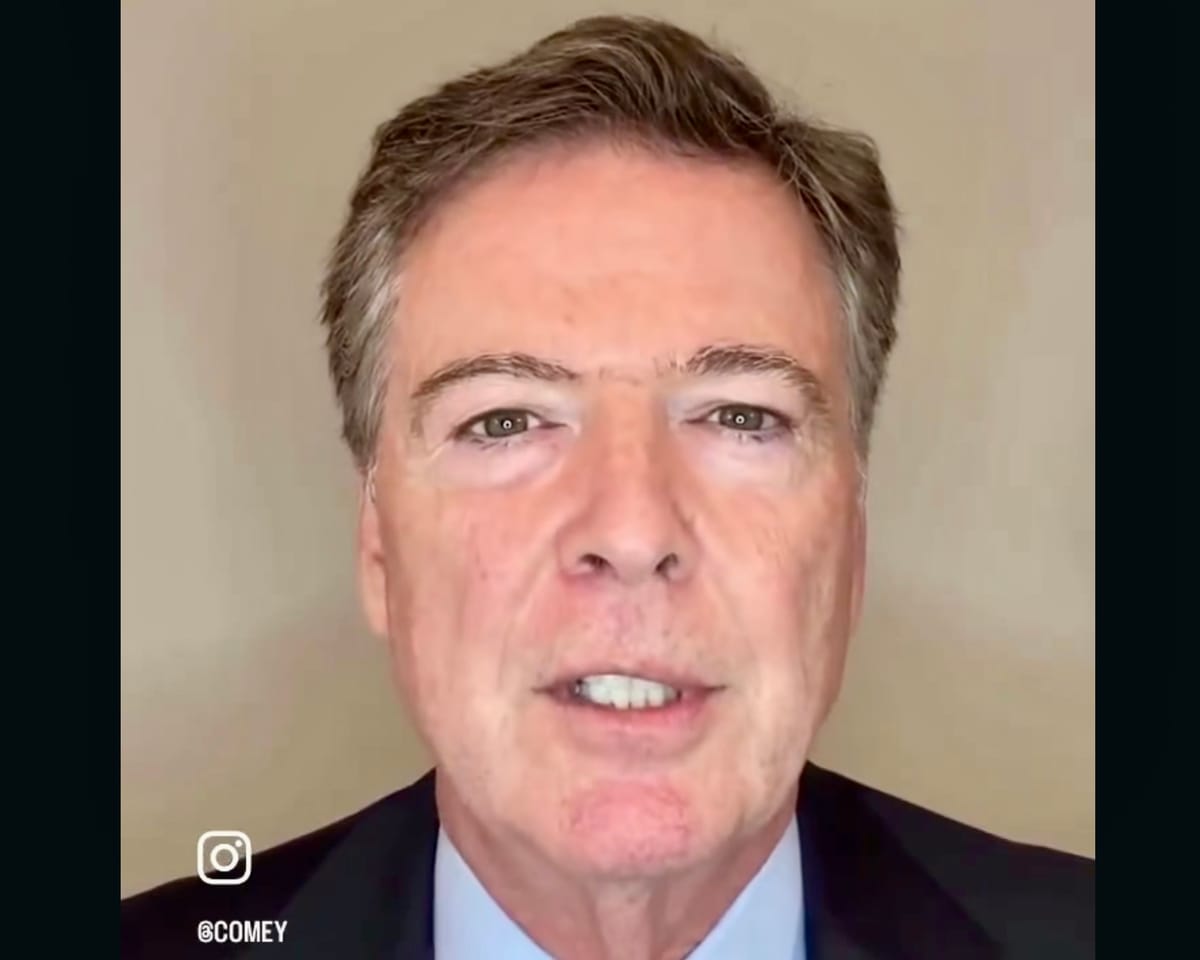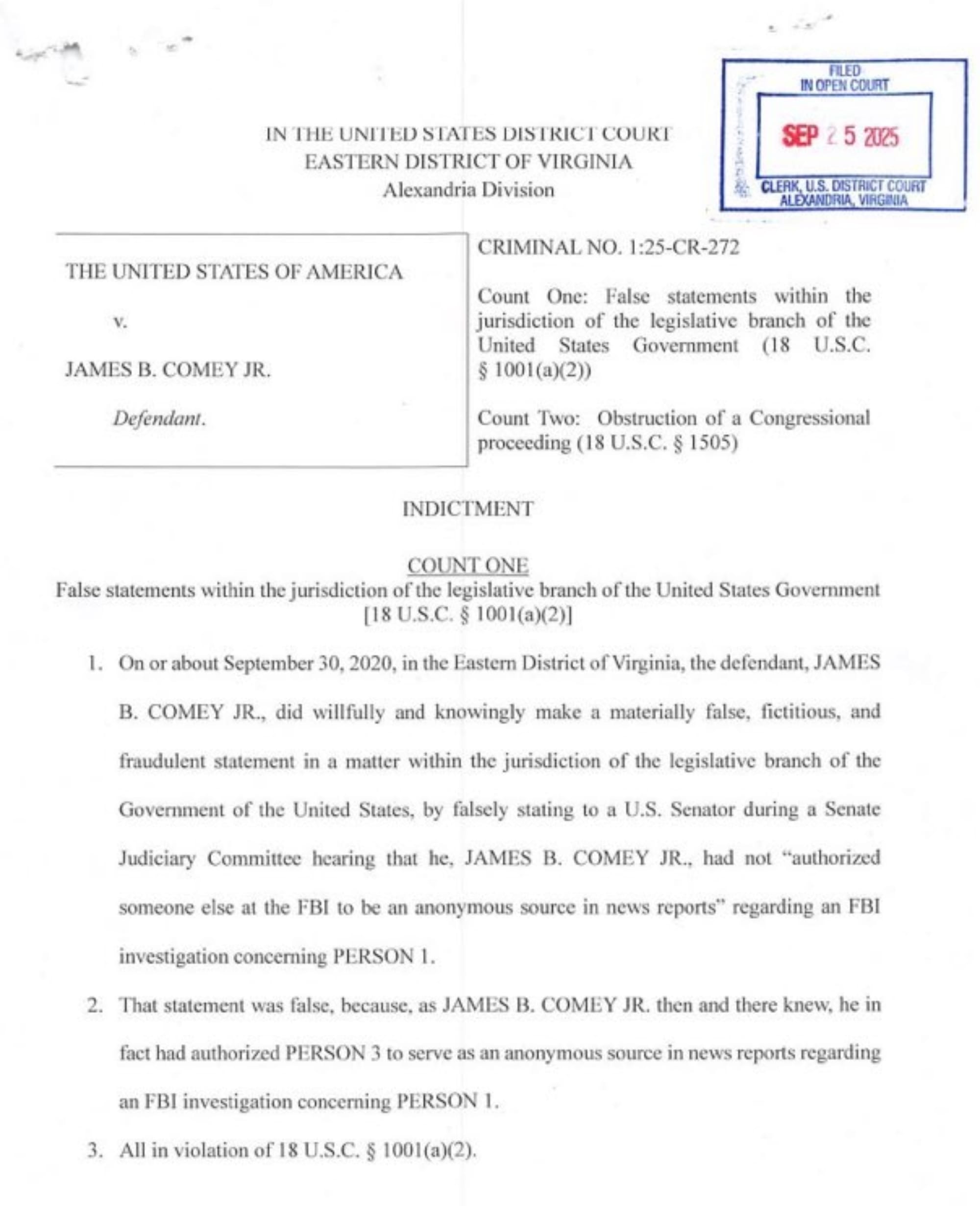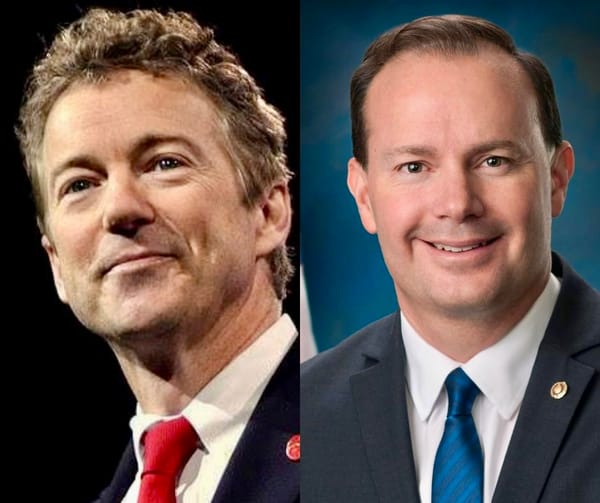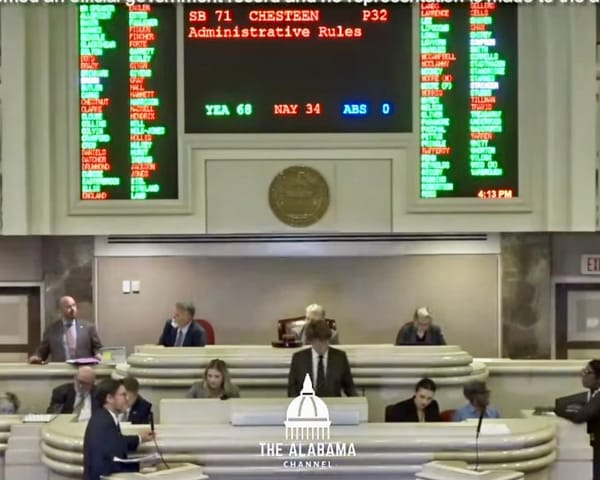Comey Indicted, Faces 5 Years
Former FBI Director indicted Thursday on two felony counts: making a false statement to Congress and obstructing a congressional proceeding

Former FBI Director James Comey was indicted Thursday on two felony counts: making a false statement to Congress and obstructing a congressional proceeding.
The charges stem from his September 2020 testimony about whether he authorized FBI leaks to the media in investigations connected to Donald Trump and Hillary Clinton. Federal prosecutors in the Eastern District of Virginia allege that Comey misled Congress in September 2020 when he testified he had never authorized anonymous leaks to the media about the FBI’s investigations. They further contend he obstructed the congressional oversight process.
Attorney General Pamela Bondi framed the move as necessary for restoring trust in law enforcement:
“No one is above the law. Today’s indictment reflects this Department of Justice’s commitment to holding those who abuse positions of power accountable for misleading the American people.”
FBI Director Kash Patel added that under his leadership, the Bureau would confront politicization and hold powerful figures responsible.
President Trump praised the indictment on Truth Social, calling Comey “one of the worst human beings this Country has ever been exposed to” and declaring “JUSTICE IN AMERICA!”
Comey, in turn, denied wrongdoing via a video statement:
“We will not live on our knees, and you shouldn’t either...My heart is broken for the Department of Justice, but I have great confidence in the federal judicial system, and I’m innocent. So let’s have a trial and keep the faith.”
Legal analysts warn the government’s case may struggle; internal DOJ memos reportedly flagged weak evidence, and a third charge prosecutors sought was rejected by the grand jury. Still, the optics are potent: an indictment of a high-profile critic of the current administration.
What many will see as especially telling is that this legal move comes amid renewed scrutiny of Comey’s handling of Hillary Clinton’s email case in 2016. Critics maintain that his public theatricality and contradictory decisions then undermined both legal norms and public confidence.
On July 5, 2016, Comey held a press conference in which he declared that Clinton and her staff were “extremely careless” in handling classified information yet stated that “no reasonable prosecutor would bring such a case.” In effect, he judged her behavior harshly — but declined criminal charges due to claimed lack of prosecutable evidence.
That decision spurred sharp criticism. The Justice Department’s Office of Inspector General later blasted Comey’s move as “extraordinary and insubordinate,” pointing out that he concealed his press plans from superiors and deviated from long-standing DOJ guidelines. Among the most controversial actions was his October 28, 2016 letter to Congress—just days before the election—announcing a reopening of the email probe after new emails were found. That late intervention, though the ultimately disclosed emails produced no new charges, arguably swayed perceptions at a critical moment.
Defenders of Comey point to the IG’s conclusion that prosecutorial decisions in the Clinton case were consistent with precedent and did not show political bias. To Comey’s detractors, such a defense appears weak: misconduct in messaging and process can matter just as much as prosecutorial discretion, especially in a politically charged environment.
To many critics, the Clinton episode is emblematic: Comey publicly castigated Clinton’s handling of sensitive information, then refused to hold her criminally accountable. That mixture of grandstanding and leniency remains an enduring wound for those who argue the system treats political elites differently.
In this new case, if convicted, Comey faces up to five years. The government must prove not only that his statement was false, but that it was materially so and that he intended to mislead—typically, a high bar in congressional testimony cases.
Beyond Comey’s fate, this indictment speaks to broader tensions: Are federal prosecutors being used to settle political scores or restore accountability? The timing—from the replacement of the U.S. Attorney in the Eastern District of Virginia with Trump ally Lindsey Halligan, to the race against the statute of limitations—is already drawing scrutiny.
For many, the Comey case offers an inverted vindication: the same man whose decisions in 2016 provoked accusations of bias is now subject to prosecution.
Comey’s full statement may be seen on Instagram HERE.
A copy of the indictment is below:






